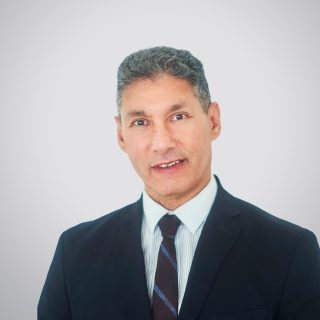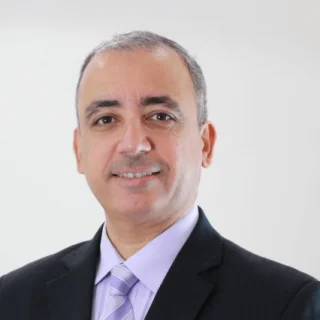GERD (Gastroesophageal reflux disease) or simply acid reflux is a very common condition. Up to one fourth of healthy individuals have occasional acid reflux that is manifest by heartburn typically after a heavy meal.
Advanced non-surgical acid reflux treatments such as the ‘TIF’ procedure are available and delivered by our US & UK Board Certified Gastroenterologists.
While most individuals with infrequent symptoms do not require specific treatment other that use of antacid medicines, there are patients who have persistent symptoms requiring frequent medications.
The typical burning type of pain in the lower chest is due to the stomach acid flowing up back into the food pipe. People who smoke and those who are overweight have a higher chance of having acid reflux. Individuals who have undergone weight loss surgeries can develop troublesome acid reflux that needs be addressed since it may not respond to traditional medications. Apart from heartburn, acid reflux can also cause chest pain, difficulty in swallowing, and soreness in the throat. Rarely it can be the cause for chronic cough, asthma and dental caries also.
People with frequent symptoms due to acid reflux need evaluation in order to identify the causes contributing to reflux, and to exclude other stomach conditions that can mimic symptoms similar to acid reflux. Following this, lifestyle and dietary modifications and weight loss may be beneficial. It is also important to understand that while medications taken to supress acid production (proton pump inhibitors such as omeprazole) may be effective for symptom control, recently these drugs have been linked to weak bones, gastrointestinal infections, iron malabsorption and kidney diseases. Therefore, it becomes even more important to take appropriate drugs under medical supervision.
Our Acid Reflux Disease Program is supported in a multi-disciplinary manner by expert gastroenterologists, endoscopists, surgeons, radiologists and our dietetic service. Apart from our doctors in Dubai, we have our visiting experts from King’s College Hospital London, who can perform advanced endoscopic procedures for GERD such as TIF, Stretta and endoluminal fundoplication.
Facilities for detailed assessment for acid reflux disorder such as high definition endoscopy to visualise the food pipe and stomach, and specialised testing with oesophageal pH-metry and impedance monitoring are available in our hospital.
Some patients can also be considered for special endoscopic and surgical procedures that can provide long lasting relief and help the patient avoid long term medication use.
The King’s Anti-Reflux Program
- Research led
- Comprehensive treatment at all stages
- Exclusive Treatment Options only available at King’s
- Deals with common and uncommon presentations of Acid Reflux
Non-Surgical Endoscopic Therapies Include:
- ARMS
- TIF
- GERDX
- STRETTA
TIF Procedure for GERD: Transoral Incisionless Fundoplication (TIF), is a minimally invasive endoscopic procedure that is used in the treatment of symptoms associated with chronic GERD (Gastroesophageal Reflux Disease). The procedure, which is done on an outpatient basis, is carried out through the mouth into the patient’s stomach without the use of surgical incisions.
Esophageal Phmetry: This is an outpatient procedure performed to measure the pH or amount of acid that flows into the esophagus from the stomach during a 24-hour period. The procedure is commonly used to confirm the diagnosis of GERD. It is quite useful to evaluate uncommon symptoms of GERD such as chest pain, chronic cough, asthma, and other throat symptoms. It is also important in patients who have a normal endoscopy and who have failed medical treatment and are being considered for surgery.
Laparoscopic Fundoplication: This is the standard surgery recommended for patients with severe GERD. It is done by a keyhole approach and usually requires one-day admission. It is recommended for patients who require continuous use of medications for acidity and in those patients who have severe GERD.
Endoscopic Stretta Procedure: Stretta is a special endoscopic procedure that can help patients in getting over their acid reflux symptoms and their dependency on medications. A special balloon is placed at the lower end of the food-pipe (esophagus). The balloon has tiny electrodes on it through which radio frequency (RF) energy is delivered to the muscles of the lower esophageal sphincter (LES). This causes tightening of the muscles at the LES and thus reduces acid reflux. The entire procedure takes less than an hour and it can be performed as a day care procedure allowing the patients to go home on the same day. The Stretta procedure now has long term data showing that it may be as effective as surgery in selected patients. The test is ideal for patients who do not like to go through an operation or cannot be given general anaesthesia.
-> Back to Gastroenterology Clinic
Faqs
الأسئلة الأكثر شيوعا
Heartburn occurs when some contents of the stomach forced back into the oesophagus, which creates a sensation of burning in the chest. The pain is often worse after eating, in the evening, when bending over or when lying down. However, when the heartburn is more frequent or interferes with your daily routine, it may be a symptom of a more serious condition that requires medical attention.
Heartburn occurs when the stomach acid backs up into the tube which carries food from your mouth to the stomach (oesophagus). Normally when you swallow, muscles around the bottom of the oesophagus (lower oesophageal sphincter) relaxes to allow liquids and foods to flow down into the stomach. The muscle then tightens again.
If the lower oesophageal sphincter weakens or relaxes abnormally, stomach acid can flow back up into the oesophagus (acid reflux) and can cause heartburn.
Initial treatment for heartburn involves lifestyle changes such as:
- Eating smaller portions of food but having more frequent meals
- Avoiding eating before bedtime
- Avoid aspirin, ibuprofen, alcohol, and caffeine
- Stop smoking
- Using two or three pillows while sleeping so as to elevate your head. This allows gravity to keep the acid in the stomach thereby avoiding acid reflux
Medications such as antacids can be taken after meals or when needed. Other types of medications include histamine H2 antagonists which decrease acid production in the stomach and proton pump inhibitors (PPIs) which block the production of acid by the stomach.
Surgery is also an option for patients:
- With Barrett’s oesophagus
- Whose medical therapy does not provide adequate relieve
- With severe reflux which causes pneumonia, hoarseness or wheezing
Heartburn can lead to specifically oesophageal cancer. Heartburn is caused by acid reflux which is when acid is splashed up into the oesophagus. This can trigger painful symptoms such as the scratchy throat or constant cough. As the years go by, acid reflux may cause cell changes in the oesophagus and this can lead to a precancerous stage called Barrett’s Oesophagus. If left untreated, it can progress to full-blown oesophageal cancer.
Heartburn can be triggered by many factors, but food is the main contributor. The foods which can trigger heartburn include alcohol, garlic, black pepper, raw onions and spicy foods. Others include chocolate, citrus fruit and their products such as oranges and lemons.
BOOK AN APPOINTMENT







